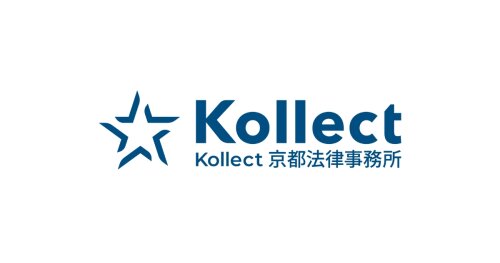Best Licensing Lawyers in Kyoto
Share your needs with us, get contacted by law firms.
Free. Takes 2 min.
List of the best lawyers in Kyoto, Japan
About Licensing Law in Kyoto, Japan
Licensing law in Kyoto, as in the rest of Japan, is a complex area that encompasses regulations concerning the authorization and approval to engage in certain activities and businesses. It can include a wide array of licenses such as those for the food and beverage industry, tourism, intellectual property, and construction. Licensing laws ensure compliance with Japanese standards and regulations designed to protect public health and safety, as well as uphold fair business practices.
Why You May Need a Lawyer
Given the complex nature of Japanese laws and regulations, individuals and businesses often require legal assistance to navigate the licensing process. Common scenarios include establishing a new business, importing and exporting goods, renovating a commercial property, or dealing with the Japanese trademark system. Lawyers with expertise in licensing laws can provide guidance on meeting the requirements of relevant licensing bodies and legally protecting your business interests.
Local Laws Overview
Local laws in Kyoto governing licensing often run parallel to national Japanese regulations, with additional bylaws specific to Kyoto Prefecture. For example, Kyoto’s food business licensing will consider local health and sanitation standards, while construction permits may need to meet both national seismic codes and local Kyoto aesthetic standards, particularly in historical preservation districts. Understanding these intersecting layers of regulation is critical for compliance.
Frequently Asked Questions
What types of business licenses are required to open a restaurant in Kyoto?
A restaurant will typically need a Food Sanitation Law license, a liquor license if alcohol is served, and possibly other permits depending on the specific services offered.
How do I apply for a construction permit in Kyoto?
The Kyoto City Construction Bureau is responsible for construction permits. Applications must include details about the construction plan, compliance with building codes, and additional local requirements for historical preservation if applicable.
Do I need a license to sell products online in Kyoto?
While you may not need a “license” specifically for online sales, it's important to comply with tax laws and consumer protection regulations. Certain products might require special permits.
What are the legal requirements for licensing intellectual property in Kyoto?
Intellectual property licensing in Kyoto adheres to Japanese IP law, requiring registration with the Japan Patent Office and a clear licensing agreement that defines the scope, duration, and other key terms.
Can a foreign business obtain a license to operate in Kyoto?
Yes, foreign businesses can obtain licenses to operate in Kyoto. They must comply with Japanese Commercial Code and establish a legal presence in Japan.
Is there a difference between a license and a permit?
A license generally allows a business to engage in a particular activity, while a permit is typically required for specific tasks or events and may be temporary.
How long does it typically take to receive a license?
The licensing process can vary greatly in length depending on the type of license and necessary approvals. It’s best to consult with a lawyer for a timeline estimation.
What penalties exist for operating without the proper license in Kyoto?
Operating without a proper license can result in penalties such as fines, business closure, and even legal charges depending on the infraction.
Can a lawyer help speed up the licensing process?
While hiring a lawyer does not guarantee a faster process, their expertise can often prevent delays caused by incomplete or incorrect applications.
Where can I verify whether a business is properly licensed in Kyoto?
Business licenses can often be verified through the municipal office or regulatory body that issues them. Some information may be publicly accessible online.
Additional Resources
Additional resources for information on licensing in Kyoto include the Kyoto Prefecture website, which provides guidelines and contact information for various local government departments. Associations such as the Kyoto Chamber of Commerce and Industry can also offer support and advice to businesses seeking licenses. Furthermore, the Japan External Trade Organization (JETRO) provides resources for foreign companies looking to enter the Japanese market.
Next Steps
If you believe you need legal assistance in the field of licensing in Kyoto, the next step would be to consult a qualified lawyer who specializes in Japanese licensing law. Conduct research to identify law firms with a strong track record in this area, and reach out for a consultation to discuss the specifics of your licensing needs. It's essential to compile all relevant information regarding your business operations to provide your chosen legal representative with a clear understanding of your situation.
Lawzana helps you find the best lawyers and law firms in Kyoto through a curated and pre-screened list of qualified legal professionals. Our platform offers rankings and detailed profiles of attorneys and law firms, allowing you to compare based on practice areas, including Licensing, experience, and client feedback.
Each profile includes a description of the firm's areas of practice, client reviews, team members and partners, year of establishment, spoken languages, office locations, contact information, social media presence, and any published articles or resources. Most firms on our platform speak English and are experienced in both local and international legal matters.
Get a quote from top-rated law firms in Kyoto, Japan — quickly, securely, and without unnecessary hassle.
Disclaimer:
The information provided on this page is for general informational purposes only and does not constitute legal advice. While we strive to ensure the accuracy and relevance of the content, legal information may change over time, and interpretations of the law can vary. You should always consult with a qualified legal professional for advice specific to your situation.
We disclaim all liability for actions taken or not taken based on the content of this page. If you believe any information is incorrect or outdated, please contact us, and we will review and update it where appropriate.










